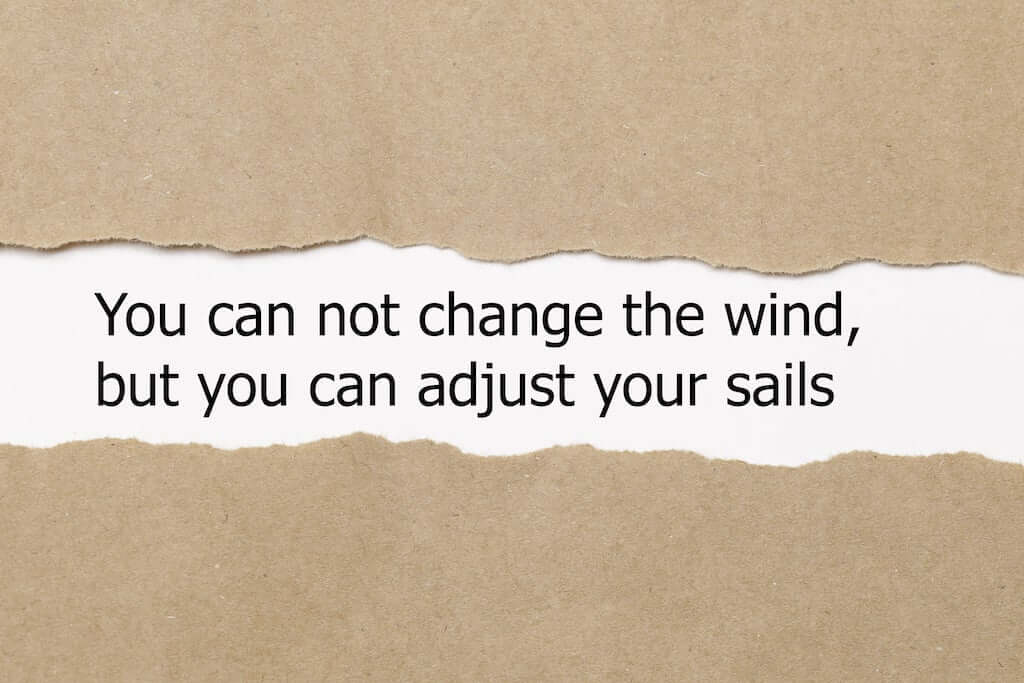Sustainable Caregiving Strategies
Strategy: Acceptance ~ Help
Accepting that we need help can be difficult. We might think, “I don’t need help. I can handle it if I just give up one more ‘unnecessary’ activity.” Before we know it, our trench is deep and we are planted firmly in the middle.

As your care recipient is tightly grasping the remnants of his or her independence, you may hold on tight to some illusions:
- I am the only one who can accomplish these tasks
- The chores aren’t that difficult and should not require aid
- What will people think?
- My care recipient will not accept help
- I will spend more time managing the jobs than if I just did them myself
- By the time I find someone to help, I could have just finished everything
“It’s not the load that breaks you down, it’s the way you carry it.”
Lena Horne
Resistance:
We may accept that we need help and our care recipient resists outside help. You may share with them that while they do not need help, you do. If resistance persists, it is often overcome when the right match is found between the paid caregiver or aide and care recipient. Think of it as Match.com for the three of you because you will also frequently be interacting with the folks who are helping your family member.
Help that is helpful:
Caregiving is lonely because friends and family often abandon ship when the waters get rough. You are so busy keeping the boat afloat that you don’t notice that you are alone until you look up and realize everyone has disappeared with the life rafts. Resentment, anger and guilt become your new companions.

Finding the right help is the first step to keeping a life while caregiving. Identify what help would be helpful and then begin the process of matching the perfect person or service to the task or activity. This is an opportunity for a triple win; You are less stressed, your caree benefits from the less stressed you and your new crew member receives the gift of gratitude that comes from helping.
Reconnect with those who went in search of higher ground and ask them if they would help with grocery shopping, cooking, lawn maintenance, housekeeping, doctors appointments, managing finances. What else? Think about each person’s talents and be specific in your request for help. Collect “no’s” and keep going until you hit a “yes”.
Feel and release frustration. Not everyone has the emotional abilities to be a part of your crew. The more time you spend angry is more time you take away from yourself. Forgiveness is a stress-reducing strategy that we will discuss later in the course.
Research:
- What community services are available to provide direct care to your family member? Start your search by contacting the local Area Agency on Aging.
- Inquire about volunteers who may be available from a house of worship.
- What services are available to reduce the time you spend on other tasks?

Paid services:
Consider grocery delivery, alternative transportation options, a pharmacy that pre-packs medicines, an app that will help you organize the tasks that you have delegated. Get creative in your quest to lighten your caregiving load.
Hire help. All home care agencies are not created equal. Learn about the options in your area and how to make an informed decision. Are they licensed by the state? Do they do background checks? Will they help you in finding the perfect caregiver match for you and your care recipient? A harmonious relationship can convert the most stubborn family member from refusing help. Find an agency that will be your family member/caregiver match.com.
When you need to get away for more than a few hours, there are respite options offered by skilled nursing and assisted living facilities. Begin the search for short term respite care before the need arises and take a weekend or week to regroup.
Caregiver support:
Accepting help that helps often includes the strategies that were covered in previous lessons such as self-care, venting and interacting with those who offer support or helpful information to plan for the worries.
Talk to a family caregiving expert. The Caregiver Action Network has established a Caregiver Help Desk, 855-227-3640, to help with caregiver challenges.
Seamless Practice

Reflect:
- What are some reasons that you have resisted sharing caregiving tasks?
- What caregiving tasks are you currently performing that could be delegated?
Journal:
- How will you spend the time that becomes available when you begin to delegate caregiving tasks?
- What self-care activities could you add into your day when you delegate some of your caregiving tasks?


Apply:
- Delegate one caregiving task over the next seven days and use that time for something that re-energizes you.
- Continue to lighten the caregiving load by identifying opportunities to share tasks.
